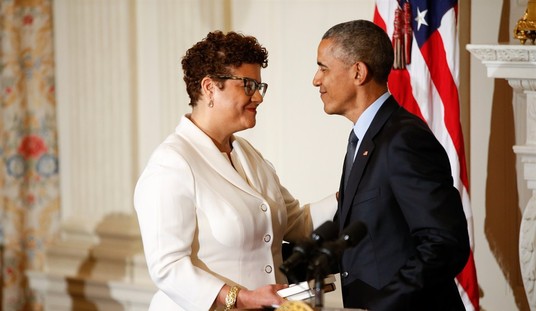The Supreme Court is getting back to work this week and they’ve got a busy schedule in front of them. But unlike previous sessions where they handled a bunch of technical cases that weren’t of much interest beyond legal nerd circles, this month they’ll be dealing with some questions that take up a lot of the headlines. The Hill has a list of some of the biggest ones to keep an eye on, but I wanted to touch on a couple of them here, along with what’s not being handled.
The first one to watch is the fight over whether or not the citizenship question will be added to all census forms instead of just the long form. And the expectation from court observers is that we’re heading for yet another 5-4 split where the conservative justices side with the White House.
The court’s more liberal justices came out swinging during oral arguments, questioning the administration’s facts and suggesting the question was improperly added to the census.
But the court’s conservative majority signaled they back adding the question, making a victory for Trump seem likely. Justices Neil Gorsuch and Brett Kavanaugh –– both Trump nominees –– noted that other countries often ask about citizenship.
Justice Samuel Alito also said it would be “arbitrary and capricious” for Commerce Secretary Wilbur Ross to accept staff’s claims that they could build a statistical model to collect data about citizenship without it yet existing, instead of just collecting the information through the census.
I’ve written about this here before and I still fail to see how the court could be so evenly divided on this one. It seems to me that it comes down to one fundamental question. Either the census should be limited to counting the number of warm bodies in the country and nothing else, or it can be used by the government as a tool to gather additional information to help them in the process of making policy.
Frankly, I’d be fine with it either way, but the question has become far too politically charged. If the courts allow the government to ask additional questions, there should be very few limits as to what they can ask, including questions about citizenship. But if they determine that the census was only supposed to count heads, then all the other questions should be scrapped. The interesting factor here is that the Commerce Department has petitioned the court, saying that they need to start printing the census forms by next month. Normally we’d have to wait until the end of the term to get all the rulings, but this one might be handed down in a matter of weeks.
The court will also be hearing arguments out of both North Carolina and Maryland over gerrymandering. The Democrats in North Carolina and the Republicans in Maryland are both claiming they’ve been shut out of representation by partisan district maps. The thing to watch in this one is whether or not the justices will even get involved, more so than how they rule in each individual case. They’ve previously been skeptical of having the federal courts get involved in what should be a question that’s settled at the state level. And this is a political fight far more so than one over government policy.
Do you know what’s missing from the lineup this session? Two things. We’re once again not going to be getting any answers in major Second Amendment cases. There are plenty of them out there, but this court still seems reluctant to tackle the larger, overarching questions of individual gun rights. The other item that’s missing is an answer to challenges involving recent abortion laws. Of course, many of them are still bubbling up through the lower courts so perhaps it’s still too soon. But the court is going to have to deal with it sooner or later and then the country is really going to be going up in flames.








Join the conversation as a VIP Member